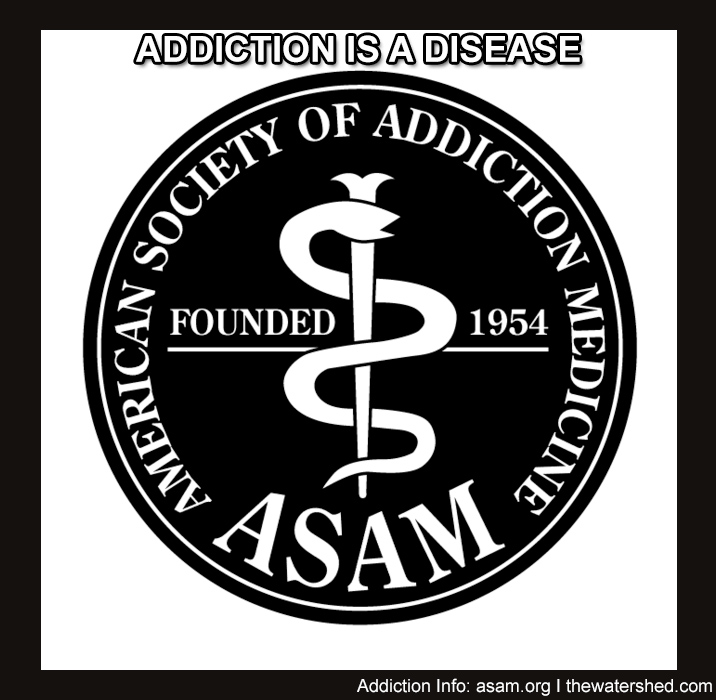ASAM: Addiction Is A Disease
|
|
|
Alcoholism & Drug Addiction Is A DiseaseAddiction is a disease and it's more than just a behavior issues, according to doctors; this includes addiction to drugs, alcohol, sex, or eating disorders. Dr. Miller stated, “It's a brain problem whose behaviors manifest in all these other areas.” The new definition was a result of a four year study conducted by ASAM, which involved more than 80 experts. Because addiction is a chronic illness, treating it is a long-term process, and will likely involve relapses. Addiction is More Than Bad BehaviorAccording to Dr. Miller, many behavioral issues are a product of addiction; however, they are not the cause. Dr. Miller says, “…disease is about brains, not drugs. It's about underlying neurology, not outward actions." After two decades of research, neurologists found that addiction will seize parts of a person’s brain. This explains various addictive behaviors, and why it is so hard to resist certain substances. As stated by the National Institute on Drug Abuse, an estimation of 23 million Americans need substance abuse treatment but only 2 million Americans are receiving the help they need. Addiction isn’t just a lack of will power, addiction is a disease. Dr. Raju Hajela, chairman of the ASAM committee, said, "The disease creates distortions in thinking, feelings and perceptions, which drive people to behave in ways that are not understandable to others around them." Genetics and age are two factors that play a role in determining whether or not people can potentially become addicts. Reports indicate that many people who experiment with drugs or alcohol at a younger age are more likely to have an addiction, in comparison to those who abstain from substances early in life. According to Dr. Nora Volkow, director of the National Institute on Drug Abuse (NIDA), the frontal cortex is the part of the brain that assists a person in reasoning and resisting unhealthy behaviors; however this is one of the last regions of the brain to mature. She explains that this is why teenagers will find it difficult to deny alcohol or drugs when under peer pressure. The ASAM and NIDA continue to develope and improve treatments from the results of the research they have acquired. They desire the general public to be more knowledgeable about addictions so that more people can get the assistance they need. Learn more about how addiction is a disease and what you can do to recover from it: www.thewatershed.com
Posted in Blog, Industry News
Tagged Addiction, Addiction Treatment, Alcohol and Drug Treatment, Alcoholism, ASAM, Disease, drug addiction, NIDA, Progressive Disease
Leave a comment
|
|



 The American Society for Addiction Medicine (
The American Society for Addiction Medicine (
